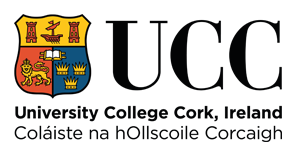Some high level insights from the co-design process:
Isolation and Solidarity
Engaging participants from diverse ethnic minority and migrant group highlighted the wide and diverse range of experiences, challenges and potential barriers to political participation. Asylum seekers have a starkly different experience than perhaps an economic migrant. A sense of isolation however emerges as a common experience even as many (not all) refer to feeling ‘welcome’. The importance and value of solidarity comes through as a central theme.
Diversity of Needs
In the development and delivery of the workshop, the diverse needs and experience of different migrant groups was both identified and experienced. This included consideration for age inclusivity, engaging youth and older people, language barriers, barriers for women including childcare, barriers to digital engagement and the diverse cultural norms of different groups.
Political Participation
The term ‘political participation’ was explored. Discussion points include among other things, consideration of issues around political awareness – within both migrant communities and the awareness of migrant rights within the political system, voting and/or running for election, political activism through civic activity, participation and integration in local community and civil society and systemic racism.
Understanding the lived experience and diverse needs of the migrant populations, including language, levels of awareness and levels of confidence and empowerment is central to defining the challenges, issues or barriers to be addressed and to engage with them around topic area.
Integration, Information and Awareness
Issues and challenges emerge around information and awareness in relation to navigation and participation in the political system, as well as participation in civil society such as knowing your rights or accessing services or pathways to employment, education. Language is a key barrier to finding information and integration. Participation with local community activities supports integration.
Race and racism
Systemic race and racism is a critical and central conversation for the City. Platforms to amplify the voices of ethnic minorities are needed. There is also a need to ensure marginalised voices do not self-silence in wider stakeholder engagement processes due to power imbalances.
Direct Provision
Additional and specific barriers and issues exist for those living in Direct Provision in Ireland requiring targeted measures.
NEXT STEPS:
- A workshop at the CityLabs Festival in Oulu in June 2022 will connect delegates from across the 10 UNIC cities and Universities, that either work with or have personal experience of this phenomenon to explore this challenge and consider opportunities to connect across our European cities for learning, exhcnage and collaborative action.
- A Research Report will be developed and launched locally in Cork 2023 in partnerhisp with CSO partners and will explore opportunities to co-create and collaboratively implement soltuions and actions in response to the detailed findings.




